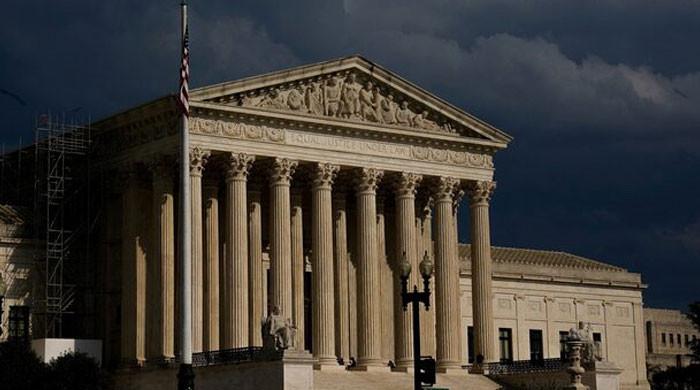Washington: a supreme divided United States court presented President Donald Trump on Friday by reducing the power of the lonely federal judges to block the actions of the executives.
In a 6-3 decision resulting from Trump’s attempt to put an end to the citizenship of the right of birth, the court declared that the national injunctions issued by the judges of the district court “probably exceed the fair authority that the congress has granted to the federal courts”.
The high -level court did not rule on the constitutionality of Trump’s decree aimed at ending the automatic citizenship of children born on American soil.
But the broader decision on the scope of judicial decisions removes a large roadblock towards the often very controversial political agenda of Trump and has large -scale ramifications for the capacity of the judiciary to brake Trump or the future American presidents.
Trump celebrated by telling journalists that he had “a whole list” of policies on which he could now proceed without opposition to the courts.
Trump’s executive decree on the citizenship of the birth law is only one of its movements which have been blocked by judges across the country – named Democrats and Republicans – since he took office in January.
The courts have, for example, blocked or slowed down its repression of immigration on the line, the dismissal of federal employees, efforts to put an end to diversity programs and punitive actions against law firms and universities.
The former presidents also complained about the national injunctions chained, but these orders increased sharply under Trump, who saw more in his first two months than the Democrat Joe Biden in his first three years in power.
Judge Amy CONEY BARRETT, a person appointed by Trump who wrote the majority opinion joined by the other five conservative judges, said that “the universal injunction was visibly nonexistent for most of the history of our country”.
“The federal courts do not exercise general surveillance of the executive branch,” wrote Barrett.
“When a court concludes that the executive power has acted illegally, the answer is not for the court to also exceed its power,” she said.
The three liberal judges dissident with judge Sonia Sotomayor saying “no right is certain in the new legal regime that the Court creates”.
“The court’s decision is nothing less than an invitation to the government to bypass the Constitution,” said Sotomayor.
“Executive power can now apply policies that flout the law and violate the constitutional rights of countless persons, and the federal courts will be paralyzed to fully stop its actions,” she said.
‘Giant Win’
Trump, in an article on Truth Social, praised the decision as a “giant victory”.
The case ostensibly concerned Trump’s executive decree putting an end to the citizenship of the birth law, which was deemed unconstitutional by the courts of Maryland, the Massachusetts and the State of Washington.
But he focused on the question of whether a single judge of the Federal District Court has the right to issue a national block to a presidential decree with a universal injunction.
The question has become a rallying cry for Trump and his republican allies, who accuse the judiciary of having prevented his program against the will of the voters.
Steven Schwinn, professor of law at the University of Illinois Chicago, said that the court’s decision “strongly undermines the power of the federal courts to reintegrate the actions without law of the government”.
“The decision will probably create a patchwork of duty citizenship rights,” said Schwinn AFPwhere it is recognized in certain places for people who have managed to continue and not recognized for people who have not prosecuted.
“This patchwork approach to individual rights is incompatible with our history and our tradition of federal rights in the United States and is incompatible with the rule of law,” he said.
The Trump administration had asked the Supreme Court to restrict the request for an injunction of a district court only to the parties who brought the case and the district where the judge presides.
Trump’s executive decree on the citizenship of the dawn describes that children born of parents in the United States illegally or on temporary visas would not automatically become citizens.
The three lower courts have judged that to be a violation of the 14th amendment, which stipulates: “All people born or naturalized in the United States, and subject to their jurisdiction, are citizens of the United States”.




